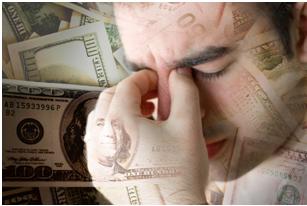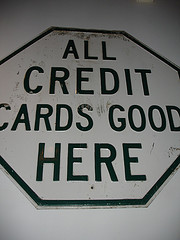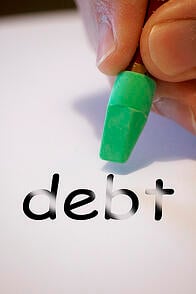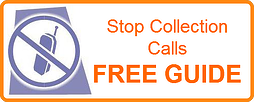Top 10 Things You Should  Know about CONTROLLING YOUR DEBT!
Know about CONTROLLING YOUR DEBT!
#1 Americans are loaded with credit-card debt.
The average American household with at least one credit card has nearly $11,000 in credit-card debt, and the average interest rate runs in the mid to high teens at any given time.
#2 Some debt is good.
Borrowing for a home or college usually makes good sense. Just make sure you don't borrow more than you can afford to pay back, and shop around for the best rates.
#3 Some debt is bad.
Don't use a credit card to pay for things you consume quickly, such as meals and vacations, if you can't afford to pay off your monthly bill in full in a month or two. There's no faster way to fall into debt. Instead, put aside some cash each month for these items so you can pay the bill in full. If there's something you really want, but it's expensive, save for it over a period of weeks or months before charging it so that you can pay the balance when it's due and avoid interest charges.
#4 Get a handle on your spending.
Most people spend thousands of dollars without much thought to what they're buying. Write down everything you spend for a month, cut back on things you don't need, and start saving the money left over or use it to reduce your debt more quickly.
#5 Pay off your highest-rate debts first.
The key to getting out of debt efficiently is first to pay down the balances of loans or credit cards that charge the most interest while paying at least the minimum due on all your other debt. Once the high-interest debt is paid down, tackle the next highest, and so on. Another option is to use the Debt Snowball. This system focuses on paying off the smallest balances first. Either way, make a plan and stick to it.
#6 Don't fall into the minimum trap.
If you just pay the minimum due on credit-card bills, you'll barely cover the interest you owe, to say nothing of the principal. It will take you years to pay off your balance, and potentially you'll end up spending almost three times what you orriginally charged.
#7 Watch where you borrow.
It may be convenient to borrow against your home or your 401(k) to pay off debt, but it can be dangerous. You could lose your home or fall short of your investing goals at retirement.
#8 Expect the unexpected.
Build a cash cushion worth three months to six months of living expenses in case of an emergency. If you don't have an emergency fund, a broken furnace or damaged car can seriously upset your finances.
#9 Don't be so quick to pay down your mortgage.
Don't pour all your cash into paying off a mortgage if you have other debt. Mortgages tend to have lower interest rates than other debt, and you may deduct the interest you pay on the first $1 million of a mortgage loan. (If your mortgage has a high rate and you want to lower your monthly payments, consider refinancing.)
#10 Get help as soon as you need it.
If you have more debt than you can manage, get help before your debt breaks your back. There are reputable debt counseling agencies that may be able to consolidate your debt and assist you in better managing your finances.







 you hundreds of dollars!
you hundreds of dollars! Have you heard of Credit Card Skimming? No? Well, neither had I until today and yet I was a victim of it several months ago. I've often wondered how someone was able to clone my card and go on a shopping spree at the Home Depot. Today I finally got my questions answered.
Have you heard of Credit Card Skimming? No? Well, neither had I until today and yet I was a victim of it several months ago. I've often wondered how someone was able to clone my card and go on a shopping spree at the Home Depot. Today I finally got my questions answered. 

 long before you are contacted by debt collectors!
long before you are contacted by debt collectors!
 What is debt snowball?
What is debt snowball? 







